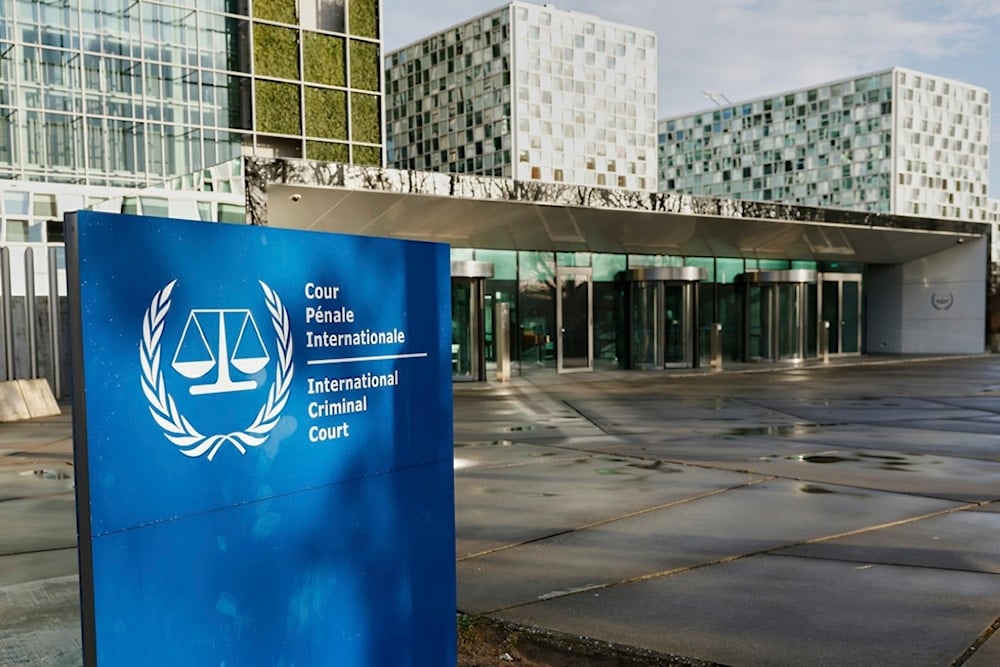'Israel' asks ICC to withdraw arrest warrants for Netanyahu, Gallant
"Israel" is challenging the court’s jurisdiction and requesting a suspension of the ongoing investigation.
-

A general view of the exterior of the International Criminal Court in The Hague, Netherlands, Wednesday, March 12, 2025 (AP)
"Israel" has formally requested that the International Criminal Court (ICC) withdraw arrest warrants against Prime Minister Benjamin Netanyahu and former Security Minister Yoav Gallant, as the court reviews "Israel's" objections to its jurisdiction over war crimes in the Gaza Strip.
Documents dated May 9 and signed by Deputy Attorney General Gilad Noam were published on the ICC’s website late Sunday.
They reveal that "Israel" is also requesting that the prosecution suspend its investigation into atrocity crimes committed in the occupied Palestinian territories.
Read more: US sanctions ICC chief prosecutor over Israeli, US war crimes probes
Legal battle over ICC jurisdiction
The ICC issued arrest warrants on November 21 for Netanyahu and Gallant, citing war crimes and crimes against humanity linked to the ongoing war on Gaza.
"Israel", which does not recognize the ICC’s jurisdiction and has consistently rejected accusations of war crimes in Gaza, is now contesting the legal validity of the warrants issued against its top officials.
ICC ordered to reassess legal grounds
In April, the ICC's Appeals Chamber instructed the court's pre-trial chamber to review "Israel's" jurisdictional objections and reassess the legal foundation for the arrest warrants.
The ruling means that the court must now consider whether it has the authority to prosecute the cases involving Netanyahu and Gallant.
No specific timeline has been established for the review, and it remains unclear what form the ICC's reassessment will take or when decisions will be made regarding "Israel's" request to halt the investigation.
Read more: Hind Rajab Foundation files ICC complaint against Israeli FM
ICC judges issue gag order on arrest warrants in Israeli war crimes
In late April, The Guardian reported that judges at the ICC have ordered that new arrest warrant applications in the Palestine case remain confidential, barring prosecutor Karim Khan from publicly announcing any upcoming moves.
In a decision issued behind closed doors earlier this month, ICC judges instructed Khan not to reference the existence of warrant applications or his intention to seek them. The order comes as Khan prepares a new round of applications targeting Israeli suspects for war crimes and crimes against humanity committed in the occupied Palestinian territories.
Prosecutor Khan’s strategy faces judicial pushback
Khan’s approach of publicly announcing pending warrant applications has fueled tensions within the ICC. Traditionally, prosecutors maintain confidentiality during investigations to protect witnesses, preserve operational security, and prevent influencing judicial deliberations.
However, in several recent cases — including those involving Myanmar’s military leadership, Afghanistan’s Taliban rulers, and suspects in Sudan’s Darfur region — Khan publicized applications before judicial approval. Sources familiar with the court say the resulting media attention placed undue pressure on the judges handling these cases.
The judges' secret order in the Palestine investigation explicitly prevents Khan from making any references to future arrest warrants unless authorized.

 3 Min Read
3 Min Read










